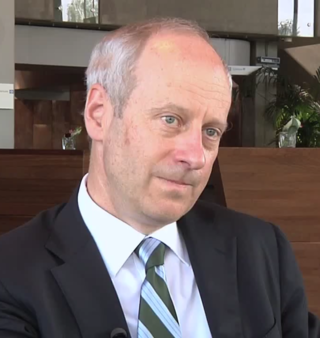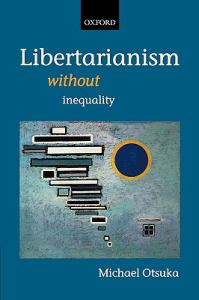Related Research Articles

Ethics or moral philosophy is a branch of philosophy that "involves systematizing, defending, and recommending concepts of right and wrong behavior". The field of ethics, along with aesthetics, concerns matters of value; these fields comprise the branch of philosophy called axiology.

Justice, in its broadest sense, is the concept that individuals are to be treated in a manner that is equitable and fair.
Will, within philosophy, is a faculty of the mind. Will is important as one of the parts of the mind, along with reason and understanding. It is considered central to the field of ethics because of its role in enabling deliberate action.

Jan Narveson is professor of philosophy emeritus at the University of Waterloo, in Waterloo, Ontario, Canada. An anarcho-capitalist and contractarian, Narveson's ideology is deeply influenced by the thought of Robert Nozick and David Gauthier.

Retributive justice is a legal punishment that requires the offender to receive a punishment for a crime proportional and similar to its offense.
Moral skepticism is a class of meta-ethical theories all members of which entail that no one has any moral knowledge. Many moral skeptics also make the stronger, modal claim that moral knowledge is impossible. Moral skepticism is particularly opposed to moral realism: the view that there are knowable and objective moral truths.

A Theory of Justice is a 1971 work of political philosophy and ethics by the philosopher John Rawls (1921–2002) in which the author attempts to provide a moral theory alternative to utilitarianism and that addresses the problem of distributive justice . The theory uses an updated form of Kantian philosophy and a variant form of conventional social contract theory. Rawls's theory of justice is fully a political theory of justice as opposed to other forms of justice discussed in other disciplines and contexts.

Virtue ethics is an approach that treats virtue and character as the primary subjects of ethics, in contrast to other ethical systems that put consequences of voluntary acts, principles or rules of conduct, or obedience to divine authority in the primary role.
In moral philosophy, deontological ethics or deontology is the normative ethical theory that the morality of an action should be based on whether that action itself is right or wrong under a series of rules and principles, rather than based on the consequences of the action. It is sometimes described as duty-, obligation-, or rule-based ethics. Deontological ethics is commonly contrasted to consequentialism, utilitarianism, virtue ethics, and pragmatic ethics. In this terminology, action is more important than the consequences.

Michael Joseph Sandel is an American political philosopher and the Anne T. and Robert M. Bass Professor of Government Theory at Harvard Law School, where his course Justice was the university's first course to be made freely available online and on television. It has been viewed by tens of millions of people around the world, including in China, where Sandel was named the 2011's "most influential foreign figure of the year". He is also known for his critique of John Rawls' A Theory of Justice in his first book, Liberalism and the Limits of Justice (1982). He was elected a Fellow of the American Academy of Arts and Sciences in 2002.

Self-ownership is the concept of property in one's own body, expressed as the moral or natural right of a person to have bodily integrity meaning the exclusive right to control one's own body including one's life, where 'control' means exerting any physical interference and 'exclusive' means having the right to install and enforce a ban on other people doing this. Since the legal norm of property title claim incapacitates other people from claiming property title over the same resource at the same time, the right to control or interfere with one's own body in any arbitrary way is secured. Anarcho-capitalism defines self-ownership as the exclusive right to control one's body as long as the owner does not aggress upon others, leading to the concept of the sovereign individual. Minarchism considers self-ownership to mean the exclusive right to control one's body insofar considering action between inhabitants and not involving the state, making it roughly a pacifist morality only among inhabitants. Self-ownership is a central idea in several political philosophies that emphasize individualism, such as libertarianism and liberalism.
Criticism of libertarianism includes ethical, economic, environmental and pragmatic concerns. With right-libertarianism, critics have argued that laissez-faire capitalism does not necessarily produce the best or most efficient outcome, and that libertarianism's philosophy of individualism and policies of deregulation fail to prevent the abuse of natural resources. Criticism of left-libertarianism is instead mainly related to anarchism. Left and right-libertarians also engage in criticism of each other.
In philosophy, moral responsibility is the status of morally deserving praise, blame, reward, or punishment for an act or omission in accordance with one's moral obligations. Deciding what counts as "morally obligatory" is a principal concern of ethics.
Agricultural philosophy is, roughly and approximately, a discipline devoted to the systematic critique of the philosophical frameworks that are the foundation for decisions regarding agriculture. Many of these views are also used to guide decisions dealing with land use in general. In everyday usage, it can also be defined as the love of, search after, and wisdom associated with agriculture, as one of humanity's founding components of civilization. However, this view is more aptly known as agrarianism. In actuality, agrarianism is only one philosophy or normative framework out of many that people use to guide their decisions regarding agriculture on an everyday basis. The most prevalent of these philosophies will be briefly defined below.
The problem of dirty hands concerns whether political leaders and those in similar positions can ever be justified in committing even gravely immoral actions when "dirtying their hands" in this way is necessary for realizing some important moral or political end, such as the preservation of a community's continued existence or the prevention of imminent societal catastrophe. If political actors can be so justified, a paradox or contradiction seems to emerge because it appears that these actors can, or even must, carry out actions that are, ex hypothesi, morally impermissible. Classic examples of situations in which the problem of dirty hands could arise include ticking time bomb scenarios of the kind popularized by the television series, 24. The problem of dirty hands lies at the point where moral philosophy, political philosophy, and political ethics all intersect.
Professor David Simon Oderberg is an Australian philosopher of metaphysics and ethics based in Britain since 1987. He is Professor of Philosophy at the University of Reading. He describes himself as a non-consequentialist or a traditionalist in his works. Broadly speaking, Oderberg places himself in opposition to Peter Singer and other utilitarian or consequentialist thinkers. He has published over thirty academic papers and has authored six books: The Metaphysics of Good and Evil, Opting Out: Conscience and Cooperation in a Pluralistic Society, Real Essentialism, Applied Ethics, Moral Theory, and The Metaphysics of Identity over Time. Professor Oderberg is an alumnus of the Universities of Melbourne, where he completed his first degrees, and Oxford where he gained his D.Phil.

Libertarianism Without Inequality is a book written in 2003 by Michael Otsuka, and published by Oxford University Press.
Gerald Allan Cohen, was a Canadian political philosopher who held the positions of Quain Professor of Jurisprudence, University College London and Chichele Professor of Social and Political Theory, All Souls College, Oxford. He was known for his work on Marxism, and later, egalitarianism and distributive justice in normative political philosophy.

Selective conscientious objection is the practice of refusing some, but not all, military service. It is much more controversial than blanket conscientious objection based on consistent pacifism. Views on selective conscientious objection range from being morally impermissible, morally permissible, a right that may be exercised, or morally obligatory in the case of military personnel asked to fight an illegal war of aggression.
Robert William Fischer is an American philosopher who specializes in epistemology and ethics. He is an Associate Professor in Philosophy at Texas State University, a Senior Research Manager at Rethink Priorities, and the Director of the Society for the Study of Ethics and Animals. His books include Modal Justification via Theories, in which he defends his account of "Theory-Based Epistemology of Modality", and The Ethics of Eating Animals, in which he argues that animal agriculture is frequently morally impermissible, but that veganism is nonetheless not morally required.
References
- 1 2 Otsuka, Michael (2018). "Curriculum Vitae" (PDF). p. 1. Retrieved 9 January 2019.
- ↑ Otsuka, Michael (1989). Equality, Neutrality, and Prejudice: A Critique of Dworkin's Liberalism (DPhil thesis). Oxford: University of Oxford. OCLC 863344393.
- 1 2 Koza, Jessica D. "Otsuka, Michael". philosophy.rutgers.edu. Retrieved 2022-10-24.
- ↑ https://cplb.rutgers.edu/news/michael-otsuka-joins-cplb-september-2022.
{{cite web}}: Missing or empty|title=(help) - ↑ "Libertarianism". The Stanford Encyclopedia of Philosophy. Metaphysics Research Lab, Stanford University. 2019.